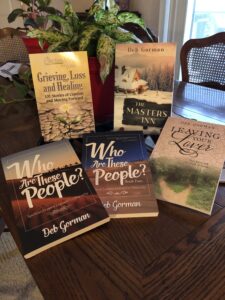Sue’s post this past Monday on the upcoming changes to Meta got me to thinking about social media.
For all the changes in the landscape since MySpace, social media continues and authors are still expected to be on at least one platform. I started with Facebook in 2009, and then added Twitter when I bought my first smart phone in September 2010. I tried Instagram but it didn’t work for me. Does anyone remember Google +? I was active there in the early 2010s. A few years later it closed down.
Now I’m on Bluesky, and in fact, my first TKZ post in 2025 will be an introduction to that platform.
Social media let me connect with other writers, make new friends, helped me be a guest blogger at a few sites and led to my first podcast appearance in 2017, and yes, helped me a sell books, though personally as an author that’s not it’s main value, rather, connection is, both with other authors and readers.
With this in mind, today we have a pair of insightful excerpts from the TKZ archives for your consideration by Laura Benedict and Sue Coletta on dos and don’ts of authors using social media. The full posts are each linked at the bottom of their respective excerpts and well worth reading in their entirety.

While many people in the writing/publishing business strongly believe that social mediadoesn’t sell books, some folks disagree. I’ve put up a lot of links here, but if you want to save a few clicks, here’s the gist: Social media is there to build relationships. The aspect of building relationships is key, no matter on what industry you work within. Take a look at examples of Digital Transformation to see why this is important and how you can use it to your advantage.
People with whom you have relationships will like you. If they like you AND you spend at least 80% of your time giving them great “content” they will tolerate the 20% of time you spend promoting your work. But the conversion rate will be less than 2%, which means you’re selling yourself and your time very, very cheaply. But folks truly dislike a hard sell. Many of the people who say you can sell books through social media want you to pay them to tell you how to do it, and they won’t give you quantifiable forecasts.
(Traditionally published books still sell best through tried and true methods like word-of-mouth, tv, radio, magazine, and web ads, vertical marketing to influencers like librarians and booksellers, hand-selling, and peer reviews. But almost none of those methods is free, and it’s only rational that publishers would prefer free methods that rely on author execution to methods that cost money.)
What is content? Content is added value, often in the form of information: lists, quizzes, articles, expertise, audio or video entertainment, memes, blogs, observations. Given the 80/20 rule, if you do fifty posts in a week, the theory is that at least forty of them should be content and not mention your work at all. Ideally, the content should be at least tangentially related to your field of expertise or the lifestyles of your audience. But even if you automate those posts with Buffer or HootSuite or some other social media-scheduling program, it takes time to curate that content.
A brief cautionary tale: A self-published writer I know spends a lot of time posting on Instagram, but I’d say 80-90% of the writer’s posts are specifically about the book. They’re quotes formatted as memes, or pictures of the cover, or bits of dialogue taken out of context and framed with artistic graphics. The posts are careful and attractive, but I gloss over them, and even find myself a little angry at having to scroll past them every time I log onto Instagram. If the 80/20-percentage figure is at all valid, it’s completely upside down. And the writer uses a blue million hashtags, but only ever gets 10 or 11 likes. I can only imagine how much time the writer spends creating those posts (or perhaps the writer pays for them). Plus, even though it almost looks like content, it’s not, and is off-putting.
There are two big dangers for me when it comes to content. I spend a lot of time crafting my blog posts. This one (I’m adding this bit in editing) has taken me about 3.5 hours, and I’ll spend at least another 45 minutes editing and posting it. On my own daily blog, it’s a challenge to come up with fresh concepts. Then there’s finding the right photos, adding links, and pumping up the SEO. Unfortunately there’s no way to quantify the ROI on publishing blog posts. Another particular danger for me is rabbit holes. Ideally, I like to spend about thirty minutes online in the morning checking out news stories and resources for my own amusement and edification—but I often spend an hour or more. Usually, I’ll manage to bookmark only one or two links to pass on to social media. But which ones to choose?
I read a lot of crime news stories—many are too sensitive or explicit to share without grossing people out over their morning coffee. But I also read some politics (no, never post about that), bits of history and archeology, and stories about textiles or architecture. I’ll occasionally post about writing and books. Nearly everyone likes books. But I don’t think of my personal blog audience as being full of writers. I’m not selling books on writing, and few people who aren’t writers care about writing motivation, or how to build a character. So I save the writer-centric stuff for here or my own blogs about the writing life.
Laura Benedict—June 28, 2017
Whether we like it or not, social media is here to stay, and writers are expected to have an online presence. To help you navigate these turbulent waters, I’ve compiled the top 10 mistakes I’ve seen writers make over the years.
#1: Don’t talk at your audience. Chat with them.
Social media is about making connections, engaging in conversation. It is not a soapbox, nor are you the most important person in the room. People will have opinions that don’t align with yours. And that’s okay. Talk it out. Get to know them.
#2: Don’t try to be something you’re not.
I see this all the time. If you’re not passionate about a subject, don’t try to fake it because it’s trendy. This isn’t high school. Share something that excites you, and your passion will shine through. Folks want to know the real you, not some made up version.
Which brings me to…
#3: Chill out, dude.
You cannot hop on social media for five or ten minutes and expect to see instant results.
Building a community takes time. If you rush it, your “buy my book” activities will reek of desperation.
#4: Don’t copy a famous author’s social media style.
What works for a thriller or noir writer might not translate well to cozy, HEA romance, or sci-fi fans. If you write in a similar genre, you can emulate that author, but add your own special flair.
#5: Don’t spout orders.
We’re told to have a clear call to action in social media marketing, that’s true, but less is more. Don’t ask for multiple favors at once.
Buy the book.
Rate the book.
Review the book.
Repost the review on Goodreads, BookBub, Amazon, B&N, Kobo, Apple, etc. etc. etc.
Tell all your friends to buy the book.
Choose one. Once you build trust, move on from there.
Otherwise, it feels a lot like this:
Read everything I’ve ever written. Don’t think about time. I’m more important.
When you’re done with that, rate and review all my books, but don’t say anything negative. I will only accept four or five stars. Don’t forget to repost the review everywhere books are sold. And I mean everywhere.
Oh, btw, I need a few things at the grocery story. Grab a pen and write this down. You’ve got time, right? ’Course you do. After all, I’m the almighty author.
Clean my house.
Walk my dog.
Feed my wildlife.
Check in on my elderly parent.
Can you cook? Great. I’m far too busy writing my next masterpiece to waste time in the kitchen.
Come to me when you’re done, and I’ll give you the next task. You’re welcome.
#5: Don’t take before you give.
We’ve talked about the 80/20 rule before. I think 90/10 works better, but you’re safe with 80/20. For those who don’t know, it means 80% of what you share should be about life, pets, passion (not writing), or goofing around, 20% book news. Sounds easy enough, right? Yet some authors can’t seem to wrap their head around it. Every post is a version of “Buy my book!”
To the writers who struggle with the 80/20 rule, let me rephrase in simpler terms. I know you’re excited—we all do—but you are not the first person to write a novel, nor will you be the last. What if an Avon lady knocked at your door day after day after day to buy her products, would you be more or less likely to whip out your credit card? Don’t act like the Avon lady.
Sue Coletta—April 18, 2022
***
- Do you find social media useful as a writer or as an author? If so, how?
- What are your own dos and don’ts about using social media, especially as a writer or author?
- Do you have an advice on connecting with other writers and readers on social media?
- Do you have a favorite social media platform?
***
This is my last TKZ post of 2024. Wishing everyone Happy Holidays and all the best in 2025.


 Have you read Meta’s new terms of service (TOS)? Even if you don’t have an account on Facebook, Instagram, Threads, Messenger, or WhatsApp, you may still be bound by its disgraceful overreach.
Have you read Meta’s new terms of service (TOS)? Even if you don’t have an account on Facebook, Instagram, Threads, Messenger, or WhatsApp, you may still be bound by its disgraceful overreach.

